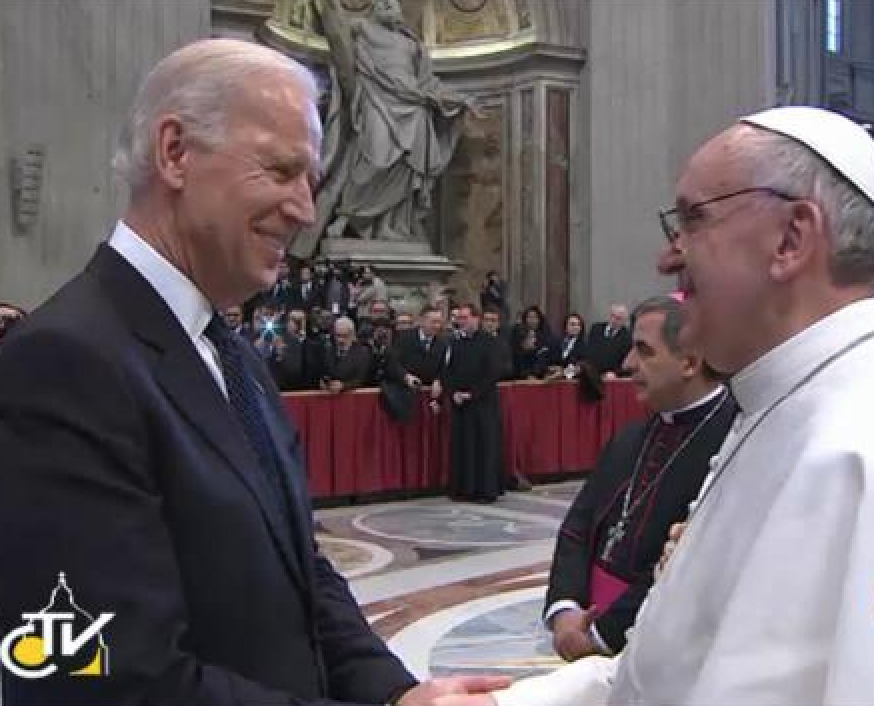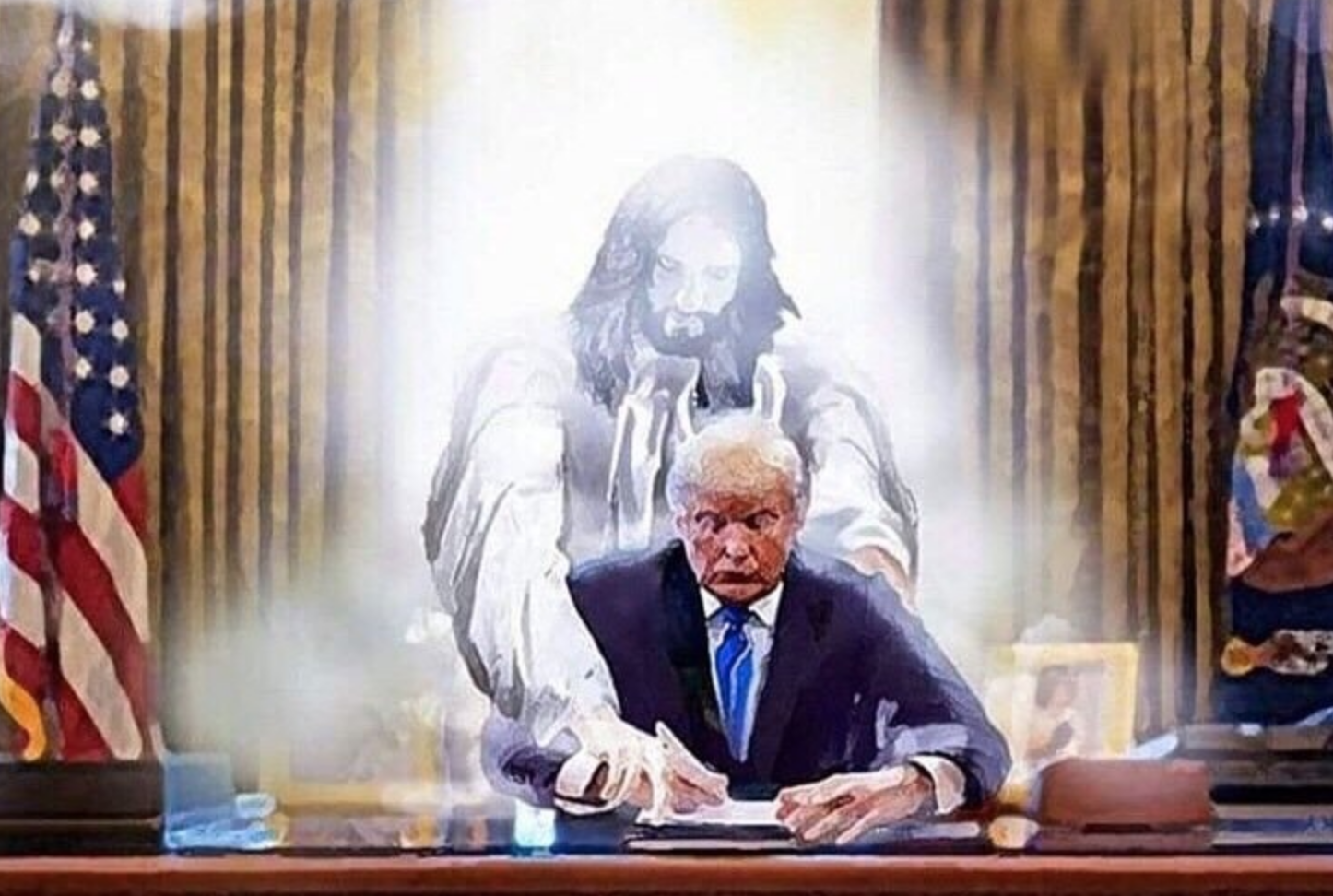Having reached the vice president's chair in the U.S. Senate, the self-proclaimed QAnon shaman, UFO expert and metaphysical healer removed his coyote-skin and buffalo horns headdress and announced, with a megaphone, that it was time to pray.
"Thank you, Heavenly Father … for this opportunity to stand up for our God-given inalienable rights," proclaimed Jake "Yellowstone Wolf" Angeli (born Jacob Chansley), his face painted red, white and blue and his torso tattooed with Norse symbols that his critics link to the extreme right.
“Thank you, divine, omniscient, omnipotent, omnipresent Creator God for filling this chamber with your white light and love," he added, in a prayer captured on video by correspondent working for The New Yorker. "Thank you for filling this chamber with patriots that love you and that love Christ. …
"Thank you, divine Creator God for surrounding and filling us with the divine, omnipresent white light of love and protection, of peace and harmony. Thank you for allowing the United States of America to be reborn. Thank you for allowing us to get rid of the communists, the globalists and the traitors within our government."
Many phrases in this rambling prayer would sound familiar to worshippers in ordinary churches across America, said Joe Carter, an editor with The Gospel Coalition and a pastor with McLean Bible Church near Washington, D.C. But the prayer also included strange twists and turns that betrayed some extreme influences and agendas.
"This is a man who has described himself as pagan, as an ordained minister, in fact," said Carter, reached by telephone. "The alt-right has always included some pagan influences. But now it's obvious that leaders with QAnon and other conspiracy theorists have learned that if they toss in some Christian imagery, then they'll really expand their base and their potential reach 100-fold."
Law-enforcement officials will soon present evidence attempting to prove who planned key elements of the illegal riot that crashed into the U.S. Capitol on Jan. 6, after the legal "March to Save America" backing former President Donald Trump's claim that fraud cost him the White House.
This is just the latest example of how conspiracy theories, on the left and right, have soaked into public discourse about COVID-19 vaccines, Big Tech monopolies, sinister human-trafficking networks and, of course, alleged illegal activities in the 2016 and 2020 elections.
There is no way to deny that this digital tornado has shaken many Protestant churches, according to a new Lifeway Research survey that asked clergy to respond to this statement: "I frequently hear members of my congregation repeating conspiracy theories they have heard about why something is happening in our country."










